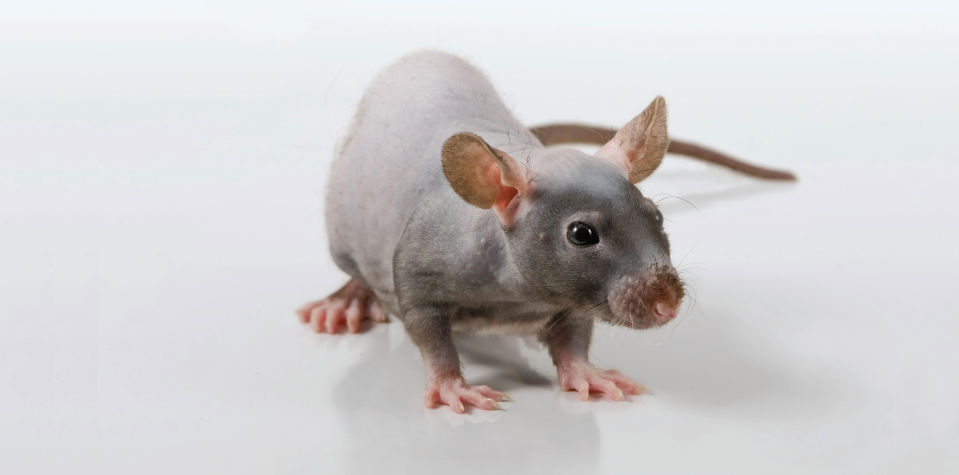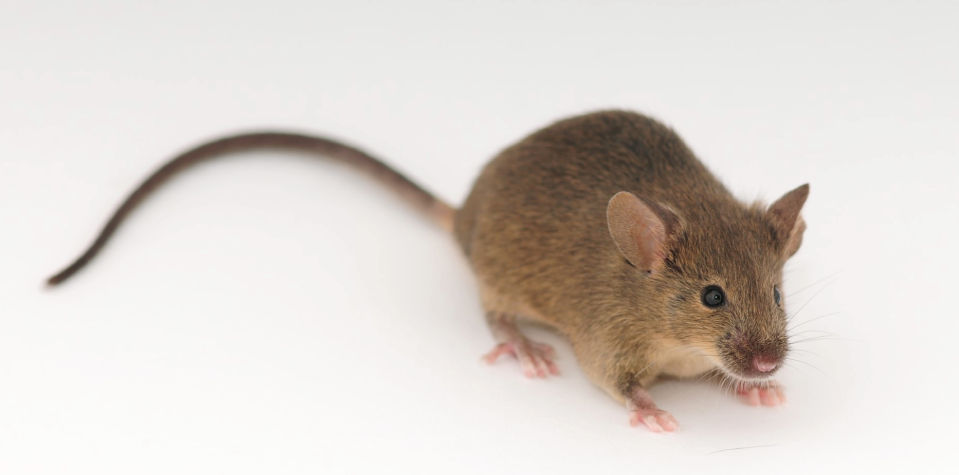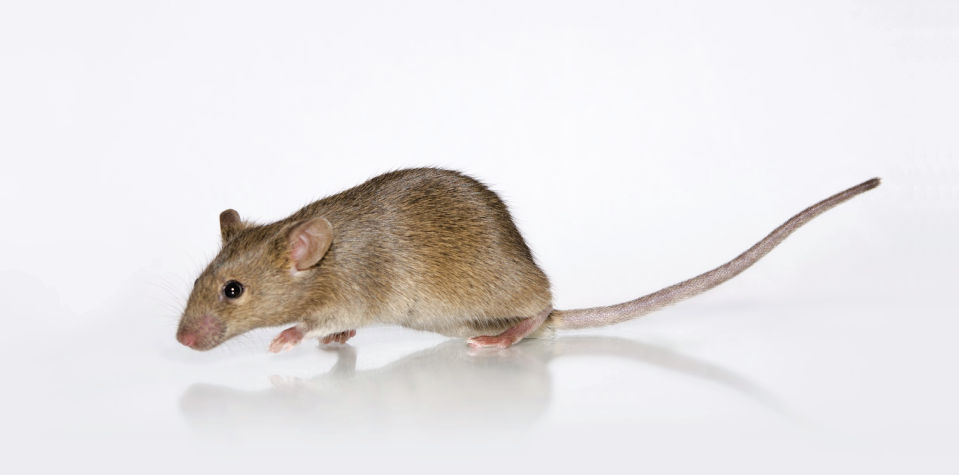Therapeutic Areas
Taconic advances your research through more predictive murine models and innovative services. Our industry-leading customer success and project management teams work with you to optimize animal model development or selection to fit your specific research needs. Browse our collection of featured portfolios to find the perfect model for your research needs.
Use the arrows to browse our Therapeutic Areas of Research
Featured Animal Models
Taconic offers a robust selection of mice and rats, including genetically engineered, immuno-oncology, diet-induced, and additional specialized models. Our field applications scientists can evaluate which model best suits your research needs; explore our best-selling model portfolios below or reach out to us for a complimentary consultation.
Search for your model, or select a category to explore a collection.
Oncology and Immuno-Oncology Models
Neuroscience Models
Cardiometabolic Models
IBD Models
ADMET Models
- Item 1
- Item 2
- Cardiometabolic Models
- Item 3
- Item 4
Oncology and Immuno-Oncology Mouse & Rat Model Portfolio
Taconic Biosciences offers a comprehensive selection of oncology and immuno-oncology models. The NOG Mouse Portfolio offers a series of super immunodeficient NOG strains expressing different human cytokines which may better support the engraftment of certain tumor types and which are used as hosts for a variety of humanized immune system (HIS) models. Learn more below, or view the entire Oncology and Immuno-Oncology portfolio
- Humanized Immune System Mice
- Immunodeficient Mice & Rats
- NOG Mouse Portfolio
- Spontaneous Tumor Mice & Rat Models
- Transgenic HLA Mouse Models
Humanized Immune System Mice
Humanized immune system models are widely applied in preclinical immuno-oncology research.
Selection of the best strain starts from determination of which human cell types are of interest. Humanized immune system mice can be co-engrafted with human tumor cell lines or patient-derived xenografts for the ultimate immuno-oncology preclinical tool.

Immunodeficient Mice & Rats
Immunodeficient mice and rats are used as hosts for xenografts and for immune system humanization. Taconic offers a range of strains from nudes through super immunodeficient to facilitate studies using both human cell lines and patient-derived xenografts as well as sophisticated humanized immune system models for immuno-oncology studies.

NOG Mouse Portfolio
The CIEA NOG mouse® is a versatile and widely used super immunodeficient model with broad global adoption by researchers in both academia and industry. The NOG mouse is the model of choice for xenografts, particularly difficult to engraft cell lines and patient-derived xenografts, as well as immune system humanization.

Spontaneous Tumor Mice & Rat Models
Cancer GEMs are models in which particular mutations have been introduced to provoke spontaneous tumor development. These models are often designed such that they carry mutations found in particular human cancer types. Taconic offers several spontaneous tumor mice and rat models. These models are particularly useful for studies of tumorigenesis and tumor prevention.

Transgenic HLA Mouse Models
Transgenic mice which express human HLA molecules are used for cancer immunotherapy research in several ways. Example applications include evaluation of HLA-restricted CTL epitope responses in vivo, determining the immunogenicity of novel cancer vaccines, and to test expansion and response of chimeric antigen receptor T cells.

Neurobiology Portfolio Mouse & Rat Model Portfolio
Taconic offers a diverse portfolio of rodent models and services for neuroscience research, including models for the study of Alzheimer’s disease, Parkinson’s disease, and amyotrophic lateral sclerosis (ALS). Get easy access to exclusive neurodegenerative disease-specific models, aged up to 40+ weeks, available at study-ready quantities. Learn more below or, view the entire Neurology portfolio.
- Parkinson's Disease Models
- Alzheimer's Disease Models
- Neuropsychiatric Disorder Models
- Amyotrophic Lateral Sclerosis (ALS) Disease Model
- CRE-Luc GPCR Reporter Mouse Platform
Parkinson's Disease Models
Parkinson’s disease is a devastating neurodegenerative disorder with a range of underlying mechanisms. Developing effective therapies to slow and halt the progression of the disorder requires robust preclinical models that mirror the biological mechanisms driving the disease. The Michael J Fox Foundation sponsors an array of models suitable for studying drivers of the disorder, including the newly launched Floxed Prkn mouse model, which contains a conditional Prkn allele. The PRKN gene has been implicated in early-onset Parkinson’s disease. Taconic is pleased to offer a range of murine models that mirror key characteristics of the disease and enable preclinical investigations.

Familial Alzheimer's Disease Models
Amyloid beta (Aβ) plaques and neurofibrillary tangles (NFTs) combined with deficits in learning and memory are hallmarks of Alzheimer’s Disease (AD). Understanding how plaques, tangles and neuroinflammation develop and discovering effective therapeutics that prevent these neurodegenerative processes are important factors for winning the battle against Alzheimer’s disease.
Taconic offers a variety of transgenic rodent models that develop plaques, tangles and neuroinflammation and which allow screening of novel drug candidates for treatments against Alzheimer’s and other neurodegenerative diseases.

Sporadic Alzheimer's Disease Models
Humanized Apolipoprotein E (APOE) mice
The Apoe gene is the strongest genetic risk factor for sporadic forms of late-onset Alzheimer Disease (AD). Taconic provides three humanized APOE mouse models that are useful for studying the role of human APOE polymorphism neurodegenerative disorders.
The association of specific APOE isoform expression with human neurodegenerative disorders has focused attention on the role of these APOE isoforms in lipoprotein receptor-dependent synaptic modulation. Targeting APOE and APOE receptor pathways represents promising therapeutic strategies to combat neurodegenerative diseases such as Alzheimer’s Disease.
APOE is a plasma protein involved in cholesterol transport with three human isoforms (E2, E3, and E4). Among the three isoforms APOE4 appears to drive amyloid pathology by inhibiting brain clearance of amyloid-β (Aβ) peptides and by promoting Aβ aggregation.
In the brain, APOE is primarily synthesized by astrocytes and microglia and is lipidated by the ABCA1 transporter to form lipoprotein particles. Lipidated APOE binds to soluble Aβ and facilitates Aβ uptake through cell surface receptors
Neuropsychiatric Disorder Models
Copy number variations (CNVs) are a type of genetic structural variation involving deletions or duplications of specific and relatively large (>1 kb) regions of DNA. Geneticists now recognize that CNVs and other rare structural variants contribute to the genetic basis of common diseases and disorders, including autism and schizophrenia.
Taconic offers neuropsychiatric disorder CNV models that develop distinct neurological and behavioral phenotypes. These models can be used to screen novel drug candidates for treating schizophrenia, autism spectrum disorders, epilepsy, and other neuropsychiatric disorders.

ALS Rat Model
Amyotrophic lateral sclerosis (ALS) is a devastating rare neurological disorder characterized by motor neuron degeneration in the primary motor cortex, brainstem, and spinal cord. This leads to progressive muscular atrophy, weakness, and is eventually fatal1. The superoxide dismutase1 (SOD1) gene has been implicated in the underlying disease mechanisms; tofersen, which inhibits the production of SOD1 was granted accelerated approval by the FDA. New treatments are urgently needed, but require robust clinical models.
Taconic Biosciences is proud to offer the SOD1 rat for use in characterizing ALS and in drug discovery efforts. Onset of motor neuron disease typically occurs between 174 and 207 days and is accompanied by substantial loss of spinal motor cord neurons and marked increases in gliosis and degeneration of muscle integrity and function.
Nowicka N, Juranek J, Juranek JK, Wojtkiewicz J. Risk Factors and Emerging Therapies in Amyotrophic Lateral Sclerosis. Int J Mol Sci. 2019;20(11):2616. doi:10.3390/ijms20112616

CRE-Luc GPCR Reporter Mouse Platform
Taconic offers a panel of luciferase reporter mice to assay GPCR ligand binding and pathway activation in various tissues. Mice with CNS specific expression of CRE-Luc reporter can be used to isolate primary neurons (for in vitro studies) or for in vivo imaging studies to assay GPCR based signaling in the CNS. This platform can also provide rapid in vivo PK/PD profiling of compounds with quantitative data to compare pharmacological action.

Cardiometabolic Disease Portfolio
Taconic offers a comprehensive suite of models and services to support cardiometabolic disease (CMD) research, including preconditioned obese mice, humanized GEMs, and custom aging and diet administration services. Explore our catalog of readily available models or connect with our scientists to discuss your specific project needs. Learn more below or view our full Cardiometabolic Disease Portfolio.
- Obesity Models
- MASLD/MASH Models
- Dislipidemia Models
- Diabetes Models
Strains for Obesity Research
Taconic offers well-characterized diet-induced obesity (DIO) models, including the widely used DIO C57BL/6NTac mouse, which reliably develops obesity and metabolic dysfunction on high-fat diets.
In addition to standard offerings, custom diet conditioning is available on a variety of genetic backgrounds and diet types — enabling tailored models for your specific research needs.
MASH Models
Taconic offers a readily available diet-induced MASH (Metabolic dysfunction-associated steatohepatitis) model on the C57BL/6NTac background, fed a high-fat, high-fructose, high-cholesterol diet to induce steatosis, inflammation, and fibrosis. This off-the-shelf model is ideal for studying liver pathology progression and therapeutic intervention.
Custom diet conditioning is also available to support alternative MASH protocols using different diets, timelines, or genetic backgrounds — giving you the flexibility to align the model with your research goals.
Highlighted in Nature
An unbiased ranking of murine dietary models based on their proximity to human metabolic dysfunction-associated steatotic liver disease (MASLD).
Read this paper to learn about the translatability of different MASH diets.
Dislipidemia Models
Taconic offers a portfolio of genetically engineered dyslipidemia models designed to replicate key features of human lipid metabolism and atherosclerosis risk. These models are valuable tools for studying cardiovascular disease, lipoprotein regulation, and lipid-lowering therapeutics.
All models are available off the shelf, with optional diet conditioning services (e.g. Western or high-fat diets) to enhance disease progression or match your study.
Paper
Lipid-encapsulated mRNA encoding an extended serum half-life interleukin-22 ameliorates metabolic disease in mice. Check out Figure 5 to see the phenotypic response of ApoB100/CETP B6 mice on a MASH diet.
Diabetes Models
Taconic offers well-characterized genetic models of diabetes for studying disease onset, progression, and therapeutic response in both type 1 and type 2 diabetes.
Both models can be supported with custom breeding, rederivation, or colony management services, and diet conditioning is available to further modulate disease severity or onset.
IBD Portfolio
Inflammatory bowel diseases (IBD) including colitis and Crohn’s disease, impact millions worldwide. Increasing cases and inadequate treatment options highlight the need for translatable models to advance preclinical research into IBD therapeutics.
Taconic Biosciences offers access to three major classes of IBD mouse models, sold with full use rights for drug discovery and development. As the in vivo microbiome leader, Taconic offers the most options for investigating the microbiome as it relates to IBD. Learn more below or, view the entire IBD portfolio.
- Chemically Induced Colitis
- Spontaneous Colitis
- Adoptive Transfer Colitis
- Microbiome and IBD
Strains for Chemically Induced Colitis
Chemically induced colitis models include a wide array of models spanning inbred strains, such as the B6 or BALB/c mouse, genetically engineered models, and humanized immune system mice. Typically, colitis is induced using dextran sodium sulfate, trinitrobenzene sulfonic acid, or dinitrobenzene sulfonic acid. Taconic scientists are available to discuss which model best suits your study needs.

Genetically Engineered Mouse Models of Spontaneous Colitis
Colitis occurs spontaneously due to gene knockout and response to the microbiome:
- Mdr1a knockout (MDR1A) - available exclusively from Taconic
- Il10 knockout on B6 background (16006) - available for drug discovery under a simple label license
- Il10 knockout on BALB/c background (15660) - available for drug discovery under a simple label license
Mdr1a mice are a model for disrupted gut barrier function leading to spontaneous inflammation. Under conventional conditions, Mdr1a knockouts will typically develop inflammation by ~20 weeks of age. Association with select microbial agents may accelerate disease progression. Please inquire about Taconic custom microbial association services.
Il10 knockout mice develop spontaneous colitis due to dysregulated immune responses to endogenous gut microbiota. Taconic's Il10 knockouts are available at conventional (Opportunist Free) and Germ Free health standards. Association with select microbial agents may accelerate disease progression. Please inquire about Taconic custom microbial association services.

Paired Strains for Adoptive Transfer Colitis
In the adoptive transfer model of colitis, naïve T cells are harvested from a donor mouse and injected into an immunodeficient mouse to cause colitis. Various donor/recipient pairs may be used in this model, leading to differing severity and disease characteristics.
Paired strains (donor / recipient)
- BALB/c (BALB or BALJBO) and C.B-17 scid (CB17SC)
- BALB/c (BALB or BALJBO) and Rag2 knockout (601)
- C57BL/6 (B6 or B6JBOM) and Rag2 knockout (RAGN12)
- Example data package for B6/RAGN12 from Bolder BioPath and an anonymous pharmaceutical company.
Note that donor T cells may be sourced from relevant GEM lines rather than wild type inbred donors and used with immunodeficient recipients on the same background.
The microbiological status of recipients may affect performance in this model. Murine Pathogen Free (MPF™) health standard recipients, such as model RAGN12 may be preferred for some applications. Custom microbial association is available from Taconic for all recipients to assist in optimizing experimental protocols.
Microbiome and IBD
The influence of the microbiome on IBD is well-documented. Only Taconic can offer a full range of health standard options to facilitate microbiome research, including germ-free mice.
- Murine Pathogen Free (MPF™) health standard is preferred for most IBD studies
- Opportunist Free (OF™) standard is more restrictive and may be required when working with immunodeficient models such as C.B-17 scid for adoptive transfer colitis models or with human immune-system engrafted mice
- Germ-free mice are devoid of a microbiome and are critical tools for study of microbiome effects. Taconic offers standard strains and GEMs as germ-free and can provide germ-free derivations for other strains as well as fecal microbiota transplantation services in germ-free mice.
ADMET Portfolio
An exclusive portfolio of translational (humanized & knockout) mouse models for an improved prediction of the Absorption, Distribution, Metabolism, Excretion, and Toxicity (ADMET) characteristics of novel compounds in humans. Key benefits of these models include improved drug candidate selection, higher clinical success rates, and reduced costs. Learn more below or, view the entire ADMET portfolio.
- Benefits
- Applications
- ADMET Services
Benefits of Translational Mouse Models for ADMET studies
Applications of Translational Mouse Models for ADMET studies
- Drug-drug interactions
- Human metabolite testing
- Assessment of bioavailability and clearance
- PKPD modeling
- Carcinogenity testing
- Infectious diseases
- Drug metabolism
- Toxicity testing
ADMET Services
Taconic offers non-GLP compound profiling services using selected ADMET models
ADMET Services from Taconic may include:
- Consultancy using ADMET mice
- Partial services (compound administration & tissue extraction)
- Full services (with sub-contractors, if required)
Your Benefits:
- Consistency of animal handling prior & during experiments
- Cost saving by avoiding animal shipment
- Overcome bottlenecks in internal pipeline
Wild Mouse Microbiome (WIldR) Toolkit
The wild mouse microbiome (WildR) was licensed from the National Institutes of Health's (NIH) National Institute of Diabetes and Digestive Kidney Diseases (NIDDK) by Taconic in 2018. While some research focus has revolved around eradicating microbial species from the intestines, the wild mouse microbiome provides insight into how the host responds to various diseases and treatments naturally. Researchers are then able to compare the results obtained from their studies with this microbiome to germ-free and specific defined flora mice to study the collective effects of different commensal bacteria.
- Advances the 3Rs (Replacement, Reduction, and Refinement) of laboratory animal research: reduces the need to recapitulate data in multiple genetic backgrounds, and provides an alternative approach to using non-human primates for measuring the influence of the microbiome in therapeutic outcomes
- Avoid false-negative and false-positive results that could derail drug discovery
- May reduce risk and increase the success rate of transitioning from preclinical to clinical programs
Featured Resources
Get In Touch
Book a complimentary consultation
Taconic Biosciences' model generation team has produced about 5,000 models in the last 15 years, developing a globally-recognized reputation for advancing the work of in vivo researchers. Our scientific program managers are here to help you navigate the complexities of model generation.
If you need immediate assistance, please contact Customer Service:
Taconic Corporate Offices
Email: info@taconic.com
Phone: +1 (518) 697-3900
273 Hover Ave., Germantown, NY 12526
North American Customer Service
Email: info@taconic.com
Phone:
+1 (518) 697-3915
Toll-free:
+1 (888) 822-6642
Hours:
(Monday - Friday): 7 a.m. - 6 p.m. ET
European Customer Service
Email: info@taconic.com
Phone (Europe and Denmark):
+45 70 23 04 05
Phone (Germany):
+49 214 50 68 023
Hours: (Monday - Friday):
7 a.m. - 5 p.m. CET
















.jpg)

.jpg)
.jpg)
.jpg)
.jpg)





.jpg)


.jpg)
.jpg)




.jpg)




.jpg)

.jpg)


























